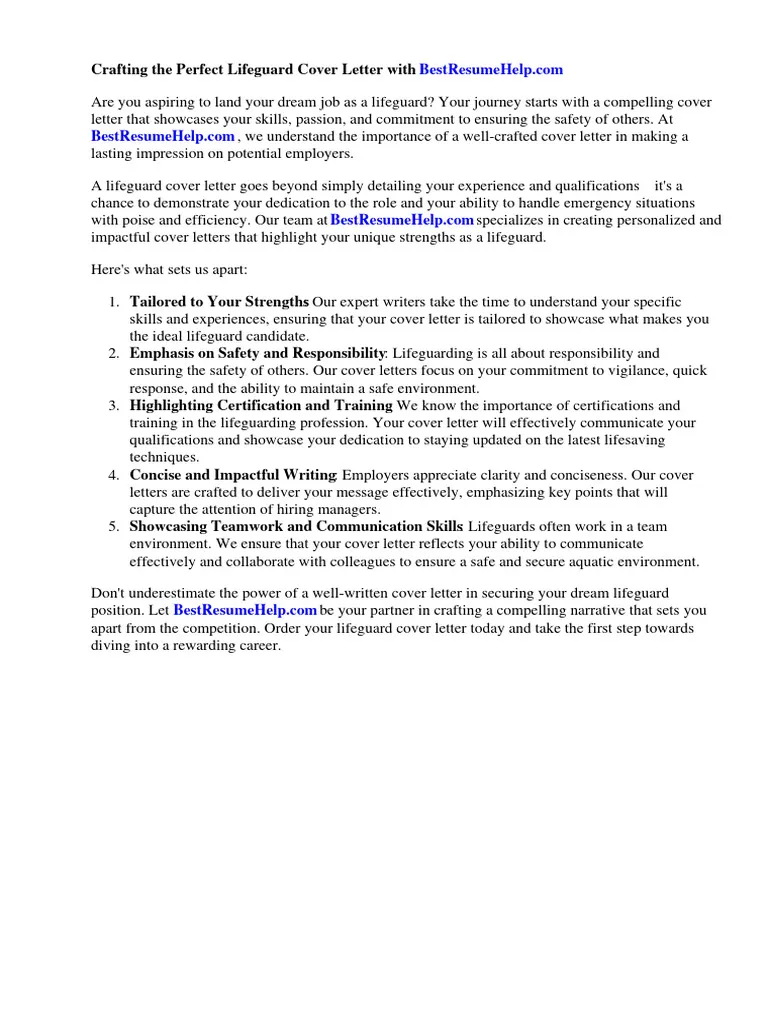Crafting a Standout Lifeguard Cover Letter
A well-written cover letter is your first impression and a crucial part of your job application when applying for a lifeguard position. It’s your chance to introduce yourself, showcase your skills, and express your enthusiasm for the role. A compelling cover letter should go beyond simply listing your qualifications; it should tell a story, highlighting your passion for water safety, your experience, and your ability to excel in a lifeguard position. This guide will help you create a cover letter that gets you noticed and increases your chances of securing an interview. Following these steps, you can transform your application from a generic submission into a powerful tool that convinces employers that you’re the perfect fit for their team.
Understanding the Purpose of a Cover Letter
The purpose of a cover letter is to introduce your resume and provide context to your application. Unlike a resume, which is a factual summary of your skills and experience, a cover letter allows you to elaborate on your qualifications and explain why you are particularly interested in the specific lifeguard position and the organization offering it. A good cover letter personalizes your application, showing employers that you’re not just sending out mass applications but are genuinely interested in the job. It’s also an opportunity to showcase your writing skills and attention to detail, both important qualities for a lifeguard.
Highlighting Key Skills and Qualifications
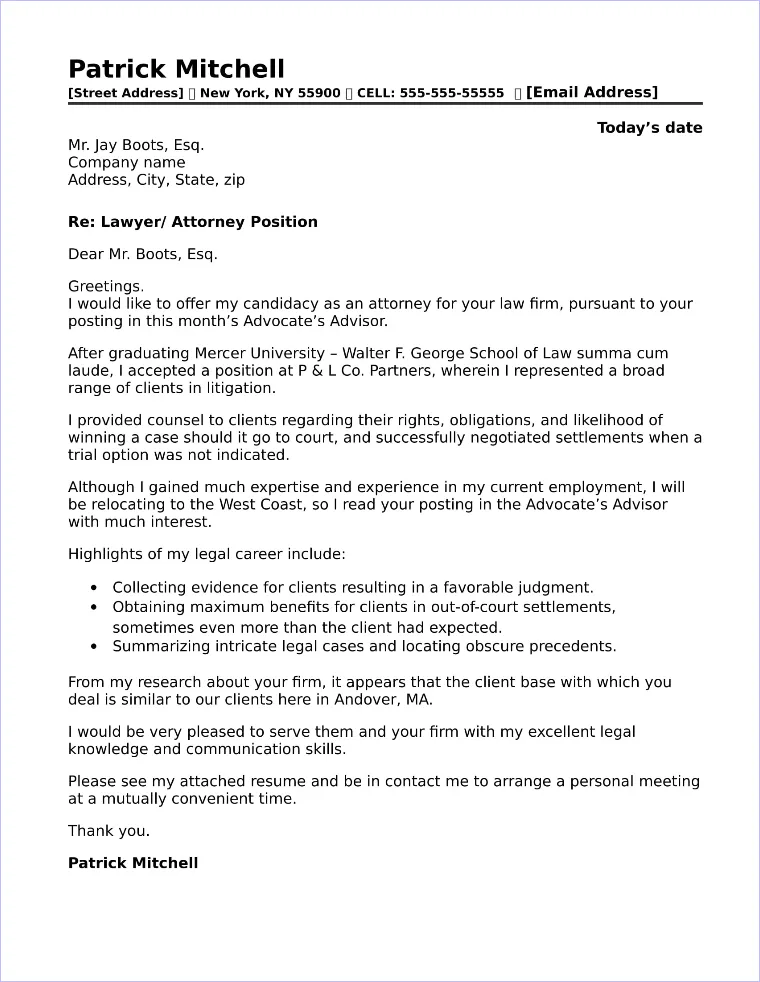
Your cover letter should emphasize the skills and qualifications that make you a strong candidate. This involves identifying the key requirements of the lifeguard position and demonstrating how your abilities align with those needs. It’s crucial to highlight skills relevant to water safety, emergency response, and customer service, ensuring you leave a positive and memorable impression on the hiring manager. Use specific examples to support your claims, showing rather than just telling the employer what you can do. Focus on your strengths and provide context to why you are the best fit.
Essential Skills for Lifeguards
When writing your cover letter, remember the essential skills a lifeguard needs. These skills are crucial for ensuring safety in aquatic environments. Emphasize your proficiency in these key areas to show the employer you are well-equipped for the role. Highlight your ability to remain calm under pressure and your strong communication skills, which are crucial for interacting with swimmers and other staff members. If you have additional qualifications like first aid or advanced lifesaving, this is where you would showcase them. Being able to showcase these skills ensures that you are qualified to perform the job.
- Swimming proficiency and water rescue techniques
- First aid and CPR certification
- Effective communication skills
- Vigilance and attention to detail
- Ability to remain calm under pressure
- Problem-solving and decision-making abilities
Certifications and Training
List all relevant certifications and training that you possess. These certifications demonstrate your readiness to fulfill the job responsibilities. Include the name of the certifying organization, the type of certification, and the date of issue or expiration. Highlighting these qualifications shows you have invested in professional development and are committed to safety. Ensure your certifications are up-to-date. Providing clear, specific information will allow the hiring manager to quickly assess your qualifications and ensure compliance with safety standards. This section can be very important to show you can carry out the role of a lifeguard.
Writing a Compelling Opening Paragraph
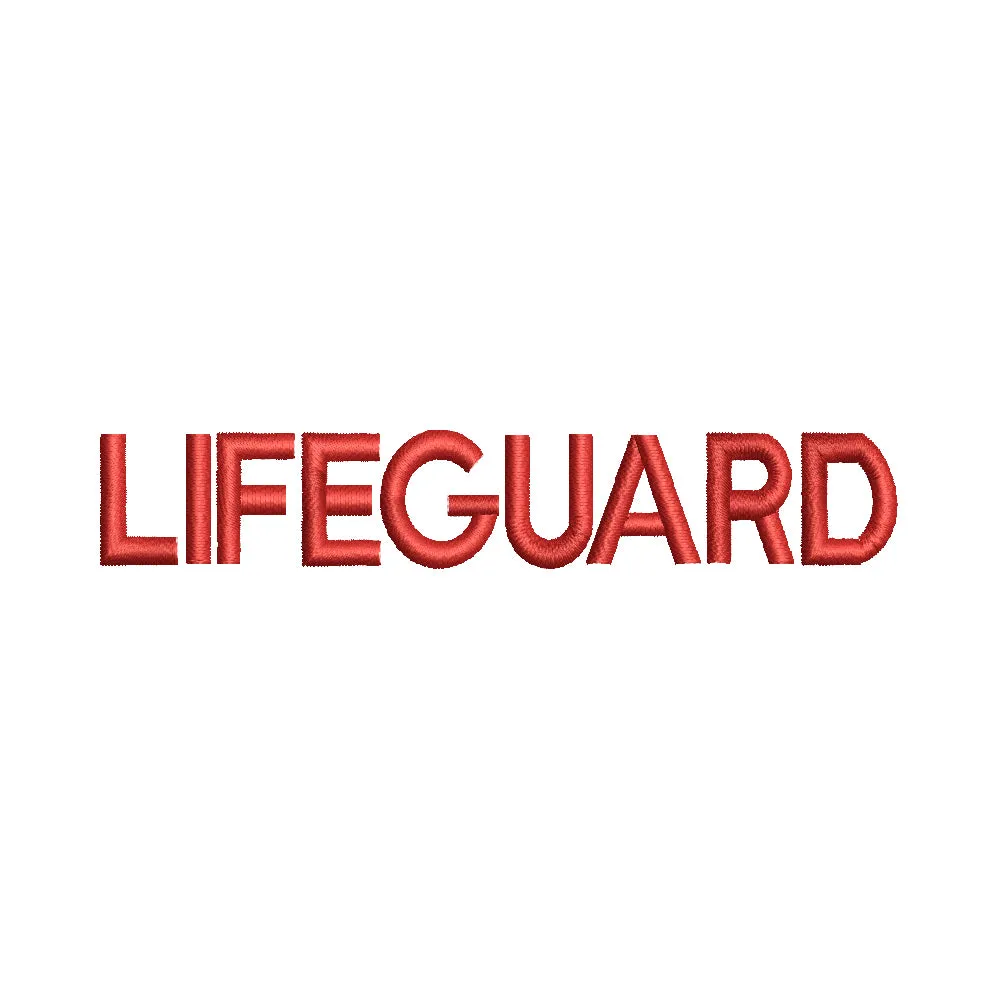
The opening paragraph of your cover letter sets the tone and grabs the reader’s attention. It is where you establish your enthusiasm for the position. Begin with a clear statement of your intent and why you are writing. Mention the specific lifeguard position you’re applying for and where you saw the job posting. Briefly state your key qualification and express your enthusiasm for the role. By starting strong, you immediately let the hiring manager know what you are applying for and why you are the best person for the role. The first paragraph should encourage the reader to continue reading.
Grabbing Attention with a Strong Opening
To make a great first impression, your opening should be concise and impactful. You can use an enthusiastic opening to start. You might open with your biggest strength or a specific experience that relates to the lifeguard position. Consider mentioning something specific that attracted you to the job or the organization, demonstrating that you have researched the opportunity. The goal is to show the hiring manager that you are the right person for the role, so they will continue to read your letter. A strong opening is about expressing your interest while highlighting your qualifications.
Tailoring Your Letter to the Specific Job
Customize your cover letter for each application. This involves carefully reviewing the job description and identifying the key requirements, skills, and qualities the employer seeks. Tailoring your letter is not just a formality; it is an effective way to demonstrate your interest. This makes it obvious to the hiring manager that you have read the job description. When you show a direct understanding of the job responsibilities, it tells the employer you are willing to do the work needed. Make sure to use keywords from the job description. It will increase your chances of getting noticed by the employer.
Researching the Employer
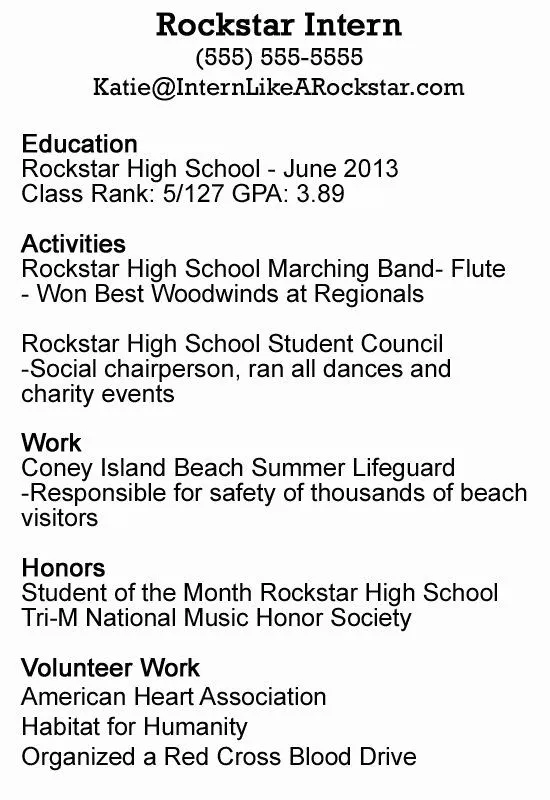
Before writing your cover letter, research the organization or facility offering the lifeguard position. Visit their website to understand their mission, values, and services. Learn about their safety protocols and any special programs they offer. Use this information to tailor your cover letter, mentioning how your skills and experience align with their specific needs and goals. This research helps you write a more personalized cover letter and shows the employer your genuine interest. Understanding the organization’s culture and values can help you connect more effectively and demonstrate that you would be a good fit.
Matching Skills to Job Requirements
Carefully compare the job description with your skills and qualifications. Identify the key skills and qualifications the employer is seeking. Then, write your cover letter to demonstrate how your experience meets these specific requirements. Providing direct examples will help you. This means that you should emphasize the skills and experiences mentioned in the job description, using the same terminology whenever possible. Doing so helps you show the hiring manager that you have what it takes to excel in the role. Customizing your cover letter gives you a strong chance to get noticed.
Showcasing Your Experience Effectively
In the body of your cover letter, describe your experience in detail. Highlight the specific tasks you have performed in previous lifeguard or related positions. Make your experience stand out by providing context and depth to your actions and results. This is your opportunity to share relevant stories from your experience and give the hiring manager a real sense of your past accomplishments. Use action verbs to create a strong sense of what you have done. This allows you to describe your experience in a way that shows you are very well suited for the job.
Describing Relevant Experiences
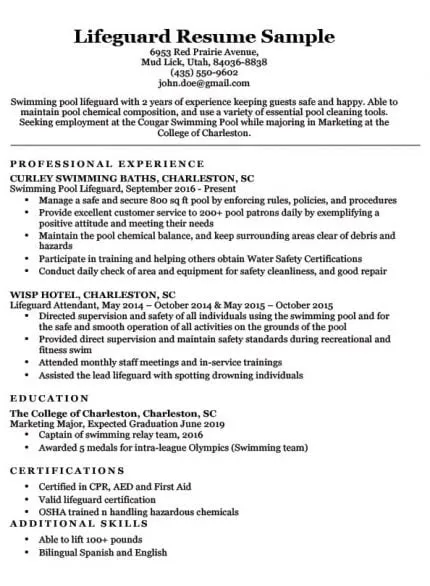
Focus on your most relevant experiences when describing your past work. Highlight the duties and responsibilities that align with the requirements of the lifeguard position. Use specific examples to illustrate your ability to perform essential lifeguard duties such as water rescue, first aid, and emergency response. Tailor your descriptions to match the language and expectations outlined in the job description. Mention how your experience helped you develop skills that you can now offer as a lifeguard. When you focus on the relevant experiences, your cover letter will show the hiring manager why you are right for the job.
Quantifying Achievements
Whenever possible, quantify your achievements using numbers and data. This approach will make your accomplishments more compelling and easier to understand. For example, instead of saying you ‘assisted in rescues,’ you could say you ‘assisted in over 20 successful water rescues.’ Be specific about the impact of your work. For example, mention the number of swimmers you have aided, the number of safety incidents reduced, or the improvements you made in safety protocols. Quantifying your achievements can make you stand out and prove your ability to provide results.
Writing a Powerful Closing Paragraph
Your closing paragraph should summarize your interest in the position and reiterate your enthusiasm. Express your appreciation for the opportunity to be considered. Restate your commitment to water safety and your ability to excel in the role. It’s the time to wrap up your letter and get the employer to call you. Use a call to action, such as expressing your availability for an interview and providing your contact information. End with a professional closing, such as ‘Sincerely’ or ‘Best regards’, and then your name.
Expressing Enthusiasm and Availability
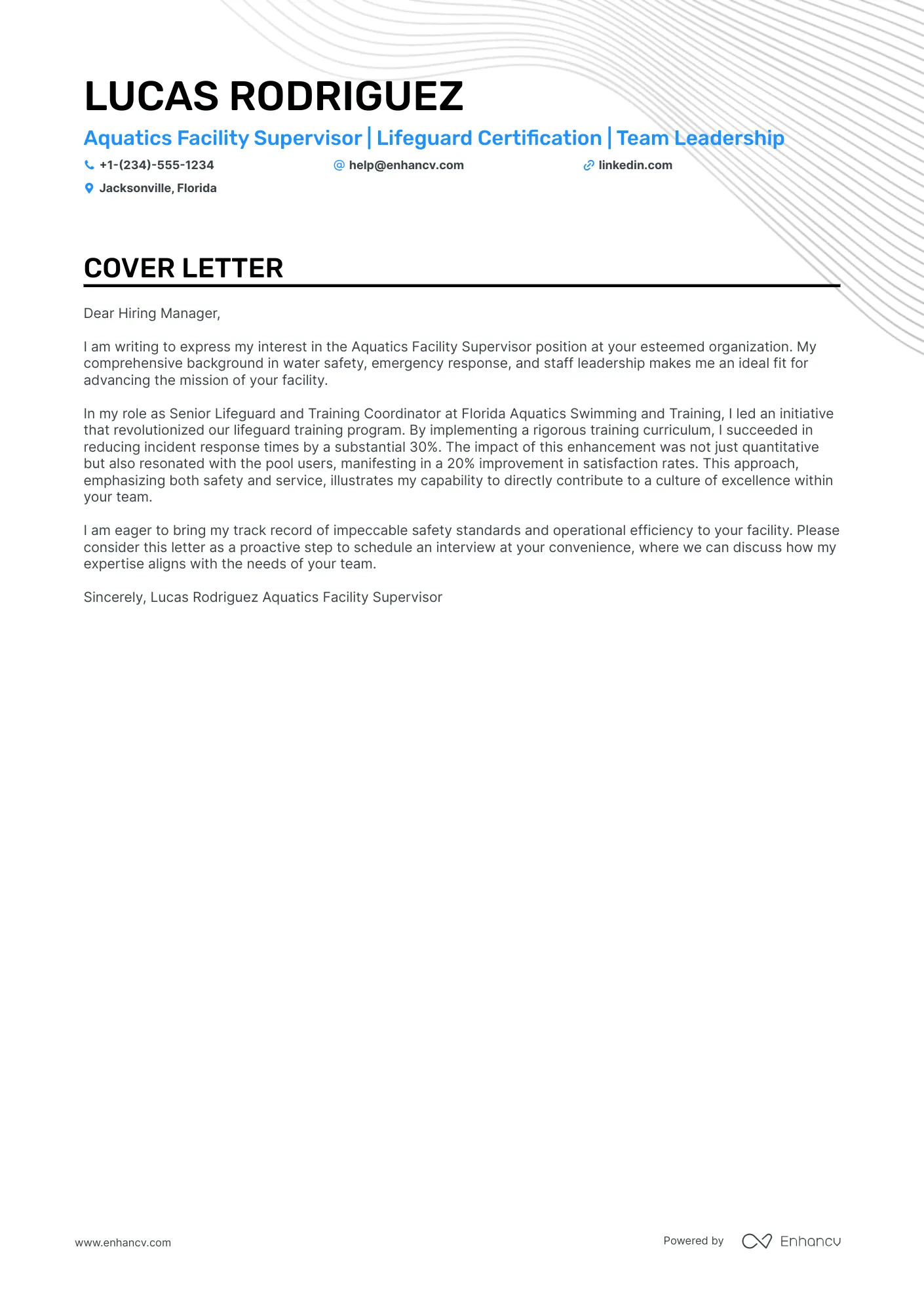
In your closing, express your genuine enthusiasm for the lifeguard position. Refer back to what attracted you to the opportunity. Reiterate your interest in the organization and your commitment to safety. Include a call to action, such as expressing your availability for an interview at their earliest convenience. Make it easy for the hiring manager to contact you. A strong close leaves a lasting positive impression, encouraging the employer to take the next step in the hiring process. You are showing the employer that you are looking forward to hearing from them.
Providing Contact Information
Ensure your contact information is readily available and accurate. Include your phone number, email address, and any other relevant contact details. Make sure the information is easy to find and that you can be easily reached. Double-check that your contact information is correct, as any errors may result in the hiring manager not being able to reach you. Providing your contact information at the end of your cover letter streamlines the application process and makes it easier for the employer to contact you for an interview.
Proofreading and Formatting Your Cover Letter
Before you submit your cover letter, proofread it carefully and format it for readability. Poor grammar and formatting can create a negative impression, so ensure that your letter is polished and professional. Proper formatting and proofreading help the reader to focus on the information in your cover letter, showing the potential employer that you pay attention to detail. Proofreading and formatting are essential steps in the cover letter writing process. A well-formatted letter with no errors makes your application stand out. Be sure to proofread everything you submit!
Checking for Grammar and Spelling Errors
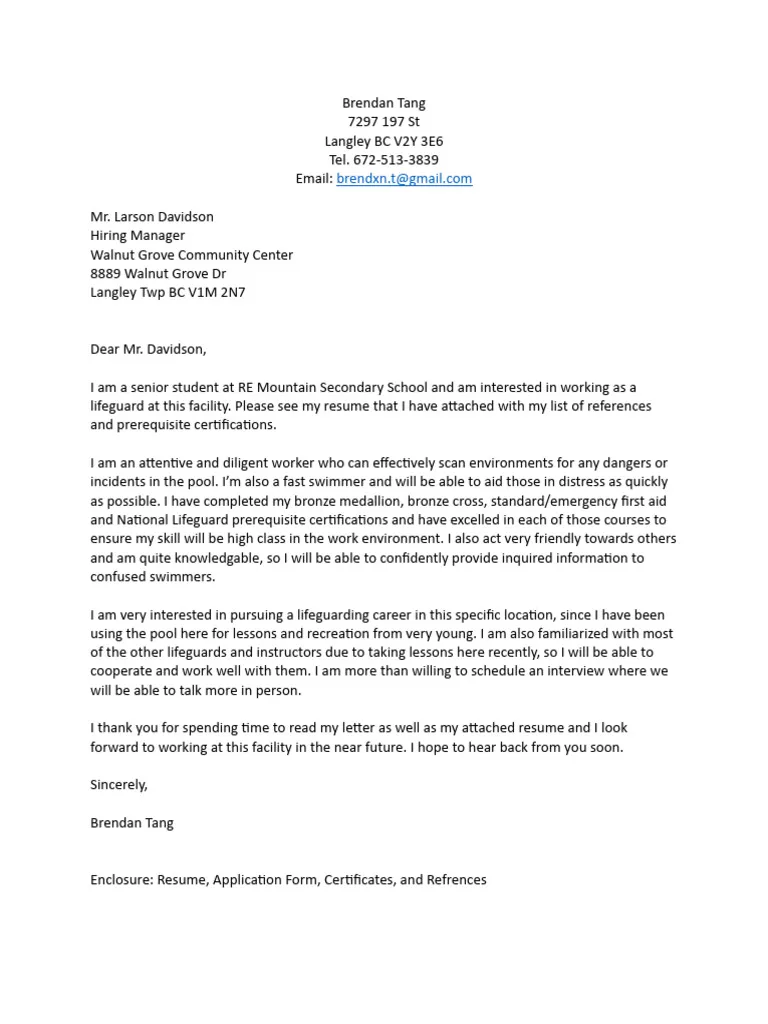
Proofread your cover letter carefully to eliminate grammar and spelling errors. Errors can undermine your credibility and suggest a lack of attention to detail, two qualities a lifeguard needs to have. Use a spell-checker and grammar checker. Also, ask a friend or family member to review your letter. This second pair of eyes can identify mistakes you might have missed. Making sure your letter is free of errors will show the potential employer your professionalism.
Formatting for Readability
Format your cover letter for readability. This ensures the reader can easily scan and understand the information. Use a professional font and font size. Break up your text into short paragraphs. Use bullet points to highlight key skills and qualifications. White space will make your letter visually appealing and easy to read. These formatting choices improve the reader’s experience and help your cover letter. A well-formatted cover letter will help you make the impression you want.
